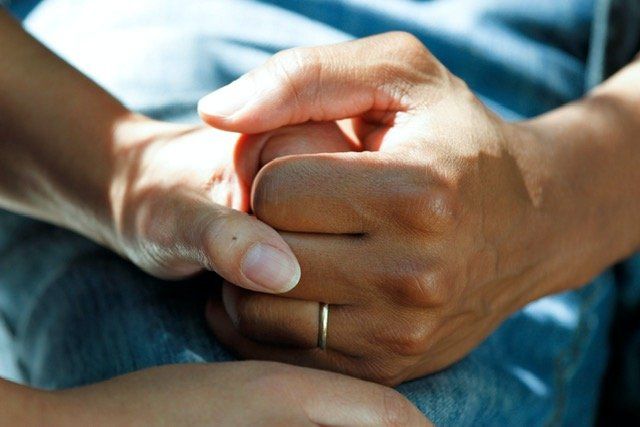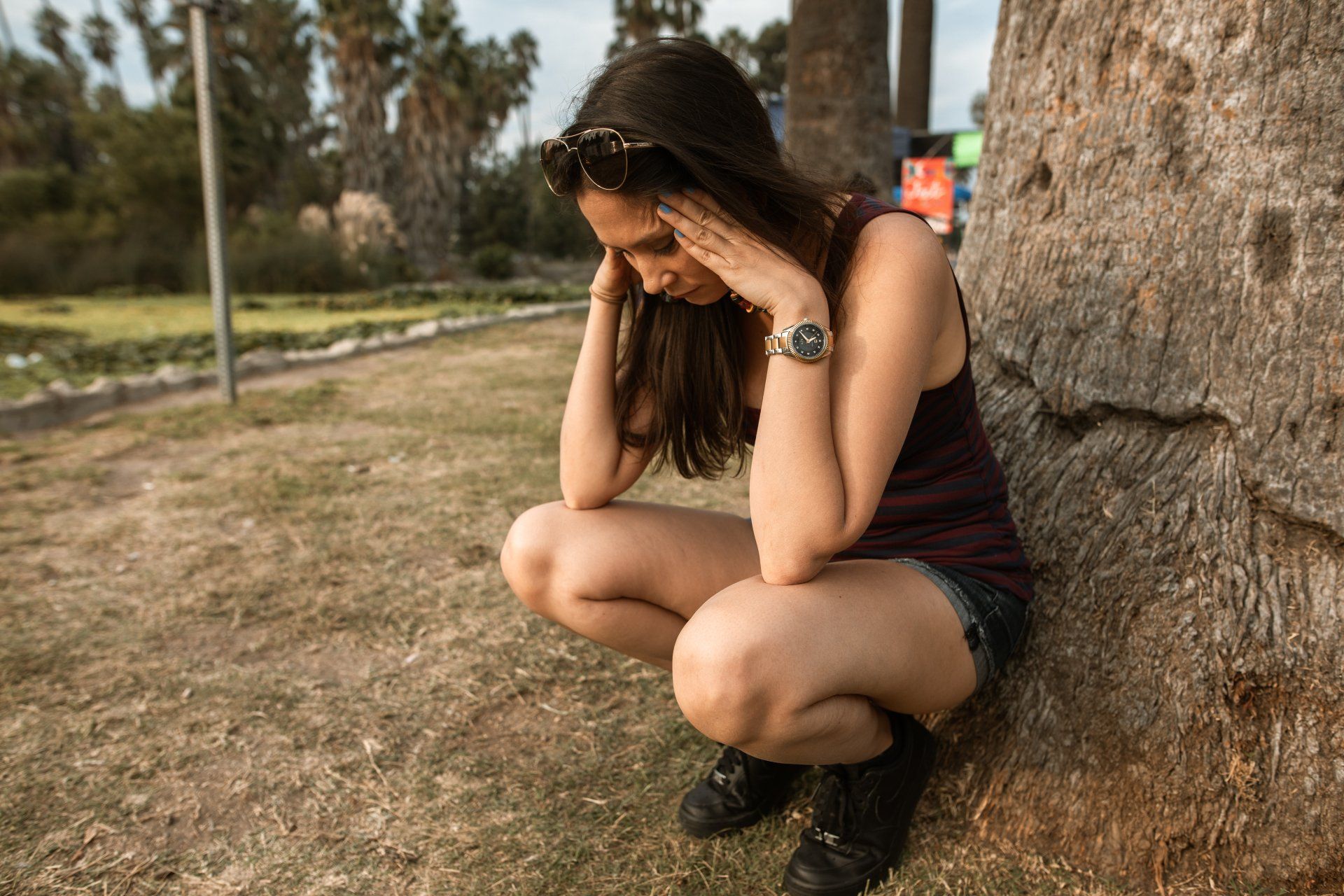Blog

By Michelle Garrett, MS, LMFT There was a time in my life where the word “forgiveness” was a four letter word. Just hearing the word “forgiveness” struck the deepest cords of anger and hurt. How do you wrap your mind around something that seems nearly unforgivable? As a therapist, I have seen so much hurt and anger coming from wounds inflicted by others, by loss, and often by a series of difficult circumstances. But, this time the pain was mine, and it was deep, and it was personal. It caused ripples in every area of my life including severing key relationships in my life. At times it felt like I was like walking headfirst into a blizzard, blindly: Each step taking my breath away, as I walked into uncertainty. But, each step I didn’t take could lead to certain death. Have you felt this kind of pain? Or maybe it’s a different kind of pain? Have you suffered through difficult circumstances, losses or even ongoing painful relationships? Many of those get amplified during the Holidays, with each commercial for a Holiday meal reminding you of what you don’t have. Or the very mention of family gatherings or gift giving, can bring anxiety, stress, or in the case of lost loved ones, gut-wrenching pain. As our family walked through these dark hours, I began to carry around a new bag, stuffed with emotions that typically weren’t mine to carry. One of the most profound was “anger.” It was the kind of anger that looked more like hate and it ate away at me. This was pain deeper than I had ever imagined, leaving me in circumstances that were unfamiliar and a future I feared more than hoped for. This “bag” was heavy and I knew it would define me if I allowed it to. I also realized that I could shove that bag behind some stuff in a “closet” of unaddressed emotions and try to forget about it and just move forward. But this bag was big, and it was toxic. And, it wasn’t going anywhere, if I didn’t do something about it myself. Moving forward was so hard. I recalled the words of Mother Teresa, “You don’t know God is all you need, until He’s all you’ve got.” We’d lost so much, but I still had my husband and two kids, so as best as I could, I tried to believe her. I grabbed on her words like a lifeline, trying to move forward, watching pieces begin to fall together as we rebuilt our lives. Slowly, I began to step into “hope,” but I still had that “bag of emotions” tucked safely inside of the “closet.” But what I realized was that the word “forgiveness” is actually quite powerful, because each time I heard it, that “bag of emotions” would come tumbling out of the closet and spill itself all over the floor, leaving me raw, overwhelmed and angry. The word “forgiveness” actually stopped me in my tracks and showed me exactly where I was in my own healing. As a therapist, I knew I couldn’t stay here. Because typically a word like forgiveness doesn’t trigger anger. I was challenged by someone to write letters that I would never send, to those who hurt me and my family, I pushed through the walls of anger and exposed raw pain that the anger had covered up, blocking me from my own healing. It was hard and I worked through grief I didn’t expect. But, I also learned several things: I could get through it. God is enough. There is actual freedom on the other side. I had to go through all of the stages of grief to experience that freedom, and any pit stop in the areas of anger/blame/resentment, or bargaining/guilt/codependency, or denial in any form would only serve to block me from dealing with the pain. Dealing with pain, was exactly what led to my own recovery. Forgiveness came naturally for the first time, after I allowed myself to go into the dark places of my pain. And, I will never forget a lady named “Leslie” who walked through this painstaking journey with me. In the Bible, Jesus says to forgive not 7 times, but 70x7. I always believed that this symbolized a type of forgiveness that knew no limits; but, I also wonder if perhaps Jesus says this because He understood that real forgiveness might be a process? But, it also says to forgive as we have been forgiven, as an essential to being made right with God. And, it isn’t just asked in the Christian Faith, it’s expected. So, out of obedience, we step into it, 70x7, until it isn’t just words or a behavior: it is a true heart change, and includes the healing and freedom that we desire. So, if you will bear with me, a few more thoughts on forgiveness. I’ve had the honor of walking through this process with people who have had great difficulty in forgiving themselves for something. I want to remind you of the power of forgiving yourself. We are all human. We all make mistakes and decisions that we wish we could re-write. But, I want to offer to you that if you can hang in there through the guilt, shame and repentances that may need to be made, you may truly have an opportunity to experience God’s love and forgiveness on a greater level than you ever imagined. In the Bible there was the story of the prostitute who was about to be stoned to death by religious others, and met Jesus in the context of a profound, short, but life-changing conversation. (John 8:1-11) The religious teachers and Pharisees asked Jesus if they should “stone” her as Moses had indicated. Jesus drew something in the sand and then stood and said, “He who is without sin, cast the first stone.” Each realizing they too had fallen short in various ways, dropped their stones and walked away. Here is the pivotal piece: Jesus then says to her, “Where are your accusers?” She says, “No one, Lord.” She looked up, out of fear and shame, and meet Jesus, eye to eye. I believe He asked her to look up, to see He had seen her, protected her, and forgave her. Then He says, “Then neither do I condemn. Go no more in sin.” He is relational. He forgives. He gives new beginnings. He calls us to greater things. We are loved. Not because of what we do, but because of who He is. Forgiveness is such a complex concept that no article could ever do it justice. I don’t know that it is ours to impose the act of forgiveness on another, but, the answer to this question often helps us to gauge where we are in our own healing process. And, the emotions that are revealed often act as the guide. Surely, forgiving another is a blessing that can be beyond comprehension, for the forgiven. But this article was actually written for the broken-hearted, struggling to forgive. I told you of the bag of emotions that blocked my own healing for a time... So, tell me, what’s in your bag? - Michelle Garrett, MS, LMFT is a Staff Therapist at TLCC Reposted from www.tlccok.com December, 2022

by Michelle Garrett, MS, LMFT This year with Thanksgiving fast approaching, I found myself looking differently at things. Thanksgiving serves as a grand entrance to the Holiday Season. And, yet to so many, this holiday of gratitude marks the beginning of a very stressful time of year. Most of us, already living fast-paced lives, find ourselves thrust into “fast forward” during the holidays: Tyrannized by our own list of to-do’s, losing appreciation for and connection to the most important things in our lives. Many of which are supposed to be celebrated during this season. How do we connect more with the gratitude of the season and less with the stress? I researched this and found I wasn’t the first curious person on this topic. It appears there is a relationship between stress and gratitude:an inverse relationship. That is, the higher the level of gratitude a person has, the lower their stress level. (Wood, Maltby, Gillett, Linley, and Joseph. 2008). Additionally, Dr. Robert A. Emmons, a researcher in the field of positive psychology, studied the effects of gratitude in 2003 and found that in his experimental group, who regularly practiced gratitude for 10 weeks, had a 25% increase in rating their personal happiness. They also were found to have less health complaints, less doctors visits, they exercised more, and slept better. Perhaps this is why Thanksgiving comes first, before Christmas: To remind us to be grateful. Christmas started with the Holiest of gifts - the Birth of our Savior. And, yet we as a culture have made this Season into so much of what it was never intended to be. Yet I am told that the first Thanksgiving, regardless of differences, people came together to celebrate their gratefulness to the God who gives. Together. And, it was gratitude that ushered in the Holiday Season. Maybe the order of the holidays was supposed to teach us a lesson. In summary, here is what gratitude offers to us: It refocuses us on the positive, reminding us of what we appreciate in life. (Phil. 4:8) Increases positivity and halts negative thought patterns (Phil 4:6-7) Helps us to appreciate and focus on what we actually have (Psalm 100:1-5) It renews the mind and increases mental and emotional resiliency (Romans 12:2) It can help counterbalance the negative effects of stress (Proverbs 17:22) It helps us to embrace our own life and reminds us to pay it forward (2 Cor 9:11) Offers a fuller perspective on life that isn’t stress or negativity focused (1 Thes 5:18) It rewires the brain, increasing positive thoughts and associations (Romans 12:2) …And it reminds me that my lengthy “to-do” list isn’t just “have-to’s”, but instead a list of “get-to’s.” Everything on my list is there because I chose it, or because I own it, or simply because I breathe. No matter how difficult my situation is, I get to do this. And, as a counselor, I know there are some incredibly painful circumstances. There are times where being grateful is a real challenge. But, I can be grateful for the sunshine, or food, or a friend, or an encouraging passerby. And, with that realization, the glass shifts: It’s no longer half-empty but can be beautifully, half-full. So, join me in a daily challenge of finding 3-5 unique things to be grateful for daily. Create an ongoing journal, maybe one on your phone. And, let’s see if this gratitude stuff is all that they say it is. "Cheerfulness is the best promoter of health and is as friendly to the mind as to the body." -Joseph Addison Resources Emmons, PhD, Robert A.(June, 2011) Why Gratitude is Good.Retrieved from http://www.dailygood.org Wood AM, Maltby J, Gillett R, Linley PA & Joseph S (2008)The role of gratitude in the development of social support, stress, and depression: Two longitudinal studies, Journal of Research in Personality, 42 (4), pp. 854-871. Author: Michelle Garrett, MS, LMFT. Michelle is a Licensed Marriage and Family Therapist and Approved Supervisor for the State of Oklahoma, and, also a clinical member at Transforming Life Counseling Center. Reposted from www.tlccok.com September, 2018.



